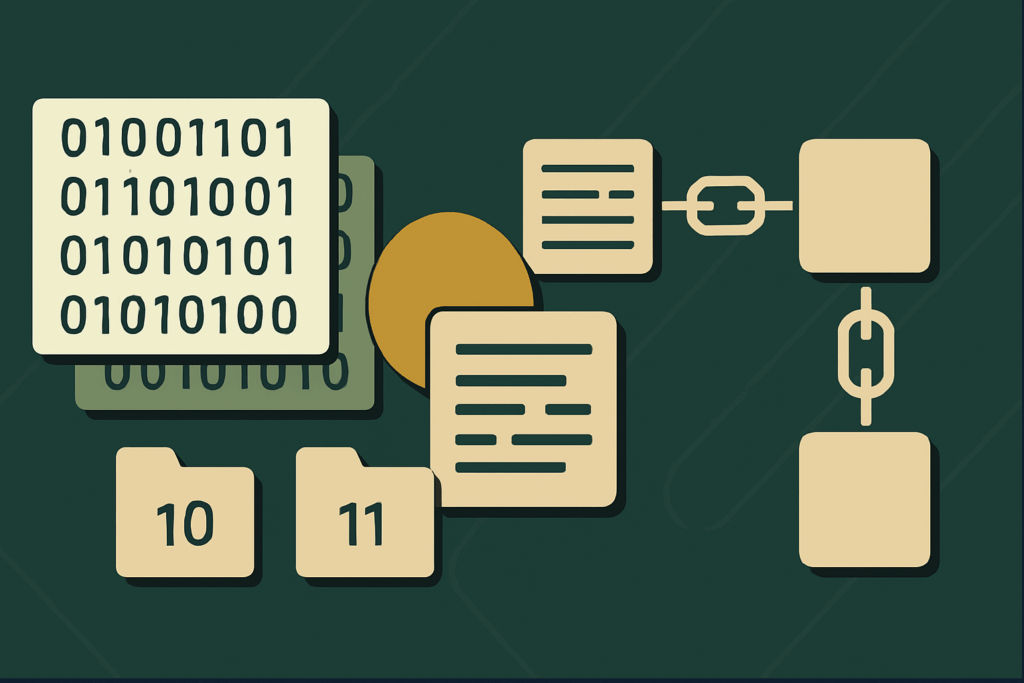LEA blockchain serialization codecs are powering the next generation of data encoding for decentralized systems. With BitWeave Variable-Length Encoding (BWVLE) and Compact Transaction Encoding (CTE), LEA offers space-efficient, secure formats purpose-built for blockchain use.

Data encoding is one of those hidden but critical layers that power the systems we depend on every day — from messaging apps to financial systems. In blockchain, where every byte counts, the need for efficient, secure, and predictable data serialization is even more pressing. That’s where the LEA Project’s Serialization Codecs come in.
This open-source GitHub repository (LEA-Blockchain/serialization-codecs) provides implementations and specifications for cutting-edge encoding algorithms designed to optimize blockchain data structures. The project currently showcases two specialized formats:
- BitWeave Variable-Length Encoding (BWVLE)
- Compact Transaction Encoding (CTE)
Let’s explore what these formats are, how they work, and why they matter.
Meet the LEA Project
The LEA Project (Lightweight Encryption Algorithms) is an initiative focused on creating secure, efficient cryptographic and data-handling tools for decentralized systems. Serialization is a key part of this vision: if you can’t store or transmit data efficiently, you lose scalability — and possibly security.
The serialization-codecs repo is part of LEA’s broader effort to create practical, well-specified, and implementable solutions for blockchain developers.
BitWeave Variable-Length Encoding (BWVLE)
📁 Location: bwvle/
What is it?
BWVLE is a versatile encoding scheme tailored for secure serialization of:
- Scalar unsigned 64-bit integers (uint64_t)
- Variable-length byte sequences
It’s built around a simple but powerful idea: prefix-based type discrimination.
How it works
BWVLE encodes each data field using a 2-bit prefix:
- 10 → indicates a byte sequence
- 11 → indicates a scalar integer
By keeping prefixes canonical and unambiguous, BWVLE reduces the possibility of decoding errors or security vulnerabilities. It’s especially useful in systems where clear data type boundaries are necessary but you can’t afford to waste space.
Why it matters
- Security through canonicalization: Prevents multiple valid encodings of the same value, a common source of bugs and vulnerabilities.
- Compact & type-aware: Delivers both size efficiency and easy decoding logic.
- Ideal for blockchain: Especially well-suited for environments where every bit is scrutinized — like smart contracts and transaction logs.
Compact Transaction Encoding (CTE)
📁 Location: cte/
What is it?
CTE is a purpose-built binary serialization format focused on one thing: compact, efficient transaction representation.
Designed with a hard size cap in mind — 1232 bytes per transaction in version 1.0 — CTE makes it feasible to pack complex transaction data into strict on-chain limits.
How it works
CTE uses a 2-bit tag system embedded in the first byte of each field to distinguish between:
- Public Key Lists
- Signature Lists
- Index References
- Variable-length Command Data
Each field type has a predictable structure and size, making CTE both space-efficient and fast to parse.
Features
- Binary structure: Allows precise byte-level control
- Field typing: Enables structured validation and easy deserialization
- Highly optimized: Designed for low-latency environments and bandwidth-limited chains
Why You Should Care
If you’re building blockchain infrastructure, smart contracts, wallets, or even layer-2 scaling solutions, encoding matters more than you think.
Inefficient serialization can:
- Bloat transactions
- Increase gas/fees
- Open up attack surfaces
The LEA Serialization Codecs offer plug-and-play solutions that are:
- Well-documented
- Security-focused
- Tested in real-world blockchain constraints
Final Thoughts
As blockchain technology matures, low-level tooling like serialization codecs will define how scalable and secure our systems become. Projects like LEA’s serialization-codecs are doing the hard work of making high-performance, compact data encoding accessible to everyone.
So whether you’re a protocol developer or just blockchain-curious, give this repo a look. These aren’t just encoding formats — they’re blueprints for better blockchain infrastructure.
🔗 Explore the repo: Github.com

